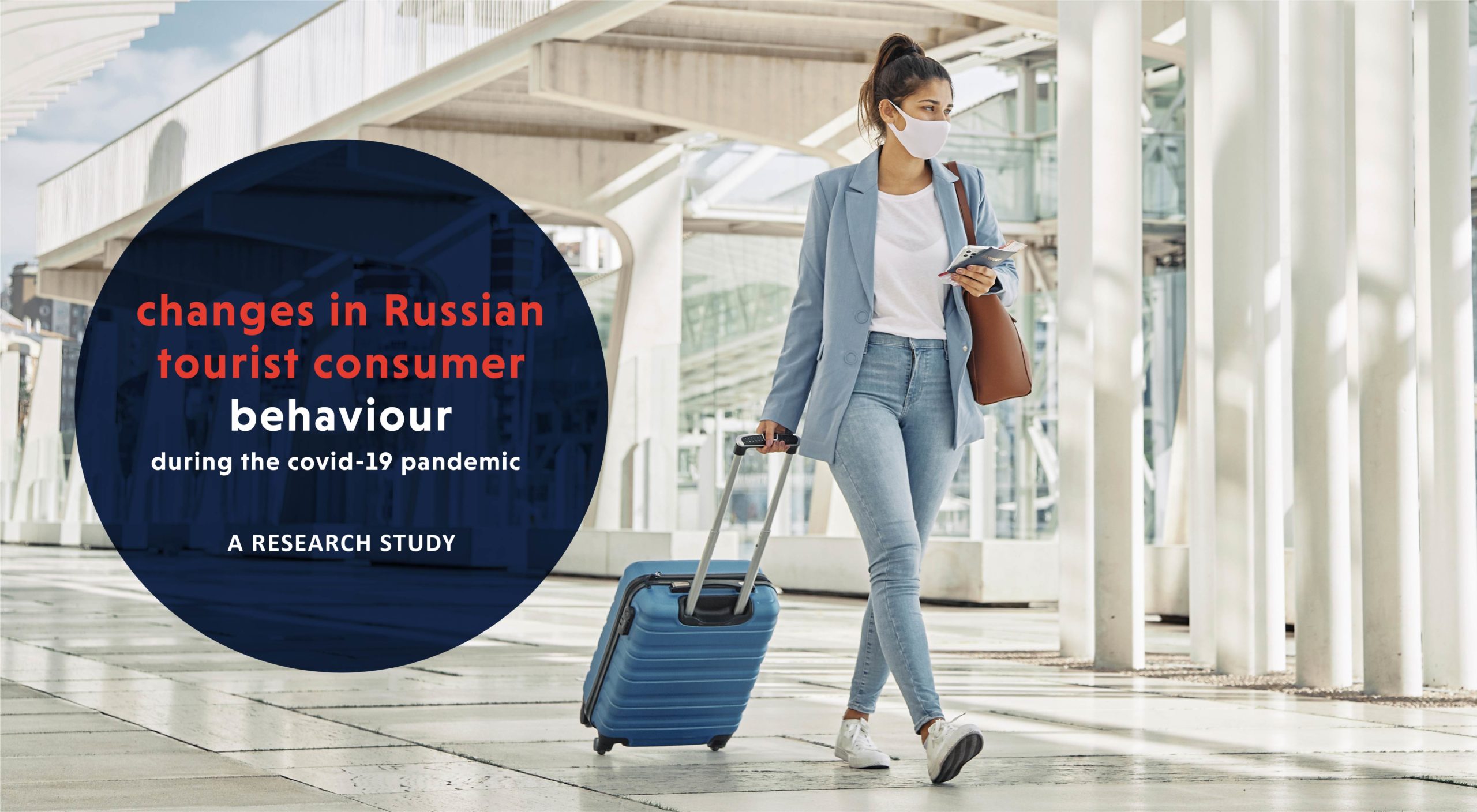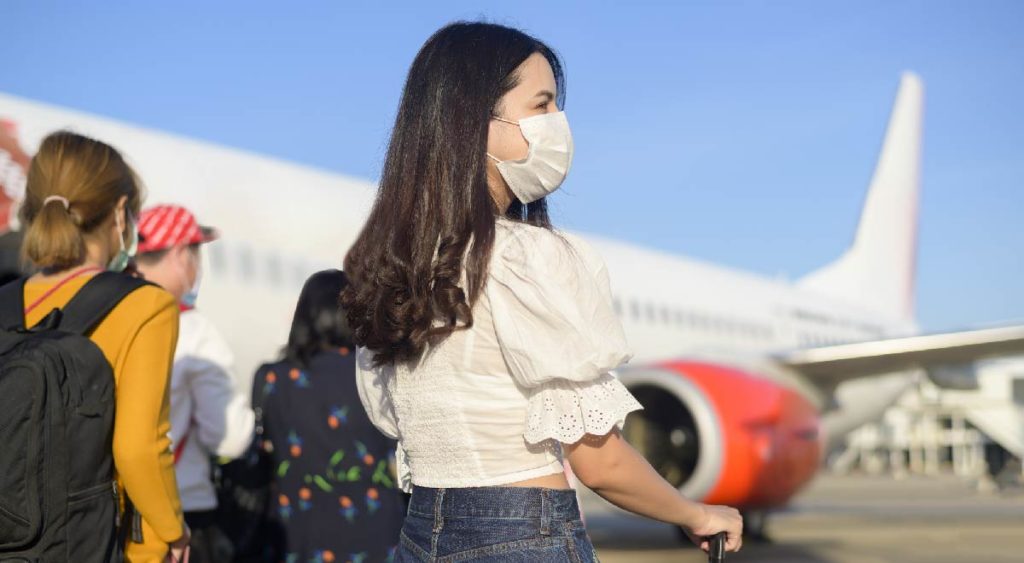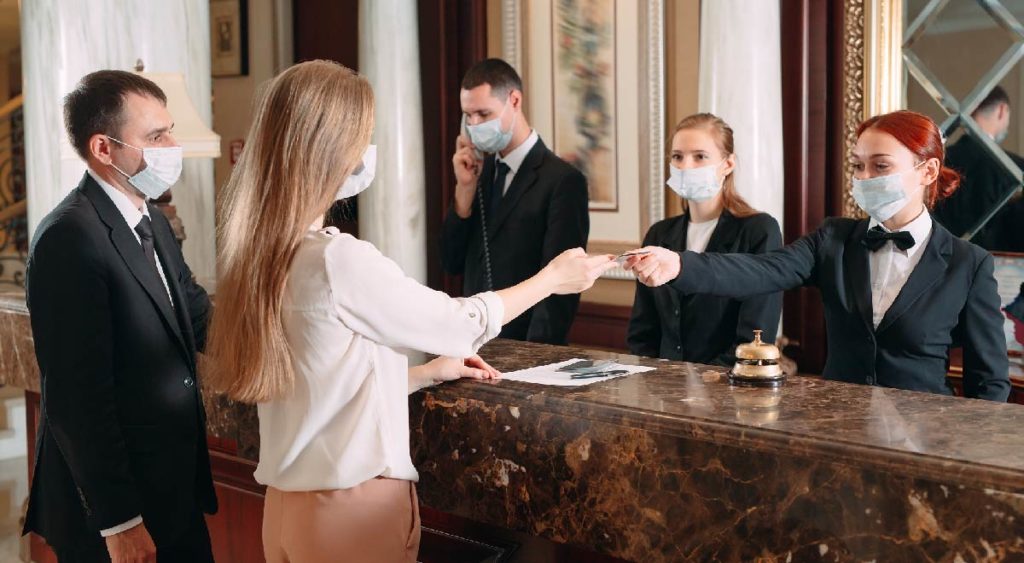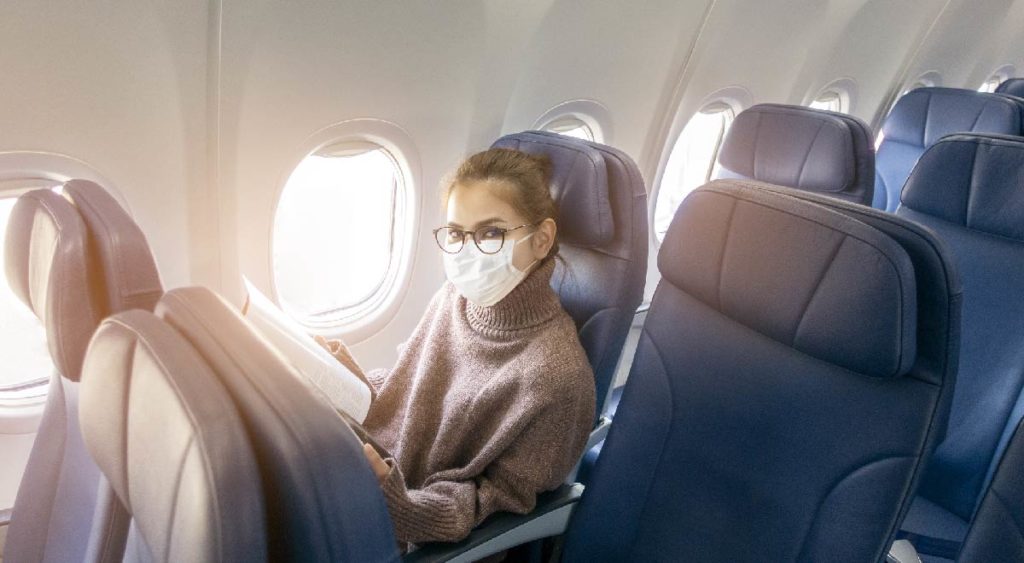changes in Russian tourist consumer behaviour during the covid-19 pandemic

overview
This study was conducted by Action Travel, a destination and travel marketing agency, and ATOR (The Association of Tour Operators in Russia) between January 15 to March 31, 2021, to examine the changes in Russian tourist consumer behaviour due to COVID-19. One of the main areas analyzed was current sales in the outbound tourism segment and sales for the spring-summer 2021 season, including early booking offerings. Considering the pandemic-related travel restrictions, changes in consumer behaviour were assessed on sales for the following destinations: Turkey, the UAE, Tanzania, the Maldives, Cuba, Serbia.
Within the study, 11 expert interviews were conducted with the heads of leading tour operator companies which generate over 80% of organized tourist flow for the destinations in question. A survey was also conducted among travel agencies, uniting over 100 retail sales offices of tourist packages and collaborating with 115 tour operators.
objectives:
- to determine the current qualitative characteristics of consumer behaviour and demand in the outbound tourism segment in Russia in 2021
- to estimate the impact of special entry regulations and requirements, caused by the pandemic, on tourism demand
- to determine (estimate) the return of demand for traditional and popular international tourist destinations in 2021, considering Russian regions which secure the majority of the outbound tourist flow
analysis of the average booking window for outbound tourist destinations
All respondents noted that the booking window for even the closest tour dates decreased by two times on average. The sales dynamic for early booking offerings is also low in comparison to previous years.
The average booking window in February – early March 2021 was 2-3 weeks before the destination arrival date. In the first quarter of 2019-2020 there was a significant number of early booking special offers (tempting with a cost reduction for summer packages by 20-30% compared to the price to book in summer) that basically comprised about 70% of all tours for the summer season.
In February-March 2021, tour operators also produced special offers for the summer season, but not as many as the previous year and with no significant demand from tourists. As such, in the first quarter of 2021, 70-80% of all bookings were those for the upcoming weeks. Greater interest in early booking tours for May-June 2021 was registered in mid to late March 2021. Within this period, the booking window for early booking offerings by destination was as follows:
- Turkey – 100-115 days prior to arrival (was 130-150 days in previous years)
- Tanzania – 50-66 days prior to arrival (it is difficult to evaluate the dynamics throughout the years, since the destination was not in great demand before)
- The UAE – 60-70 days prior to arrival (was 65-75 days in previous years)
- The Maldives – 8-90 days prior to arrival (was 110-130 days in previous years)
- Cuba – 60-65 days prior to arrival (was 95-110 days in previous years)
On average, the booking window for the destinations in question decreased by about 1.5-2 times. It is worth mentioning that the peak in package sales to Tanzania and Cuba was achieved in the winter months (those are traditionally winter destinations), and naturally, the sales dynamic here differs from that of the summer destinations.
It should be noted that the preferences of tourists have also changed when considering early booking package tour offerings. Tourists nowadays are paying more attention to the offer terms and conditions, the initial payment amount and the tour payment schedule. They then choose the most convenient terms for them, with no significant booking prepayments and the chance to carry out all of the calculations as close as possible to the arrival dates. It is also important to note that all of the countries under consideration at the time of the study were visa-free, so the payment terms might be close to the date of arrival. In the case of destinations requiring visas, there would be no way of meeting consumers concerns by offering them an opportunity to pay just before the arrival.
Another important detail is that many trips (up to an estimated 40% of all reservations), booked for the summer 2021 period, are not new, but were postponed from 2020, due to most tours being canceled because of the pandemic. This is the first time a situation like this has occurred in the tourism market; there have not been transfers on such a significant scale before.
The most popular early booking destination in 2021 was Turkey, until April 13th (date the borders closed) as it was the only beach destination for Russian tourists. However, according to forecasts, this year the demand for the Maldives, Cuba, the UAE and even Tanzania will be popular even in the summer season. As these countries were typically seen as winter destinations, we can see a certain “seasonality blurring” due to restrictions associated with the coronavirus.
reasons for booking window changes in 2021
All the lifestyle changes brought about by the spread of COVID-19 and the measures to combat the virus have affected tourism and travel heavily. One of the greatest limiting factors is the mandatory quarantine in the country of destination. The country may be open to Russian tourists, but the need to quarantine for 1-2 weeks is undoubtedly a constraining factor. The second significant reason not to purchase tours in advance is the fear of a new disease outbreak both in Russia and in the country of destination and, as a consequence, changes in the entry regulations and unclear money return policies.
Pricing policy is the third reason holding people back from purchasing a tour. The increased exchange rate causing a rise in the cost of tours often puts people off taking a vacation abroad (an increase in prices for air tickets and accommodation in a number of destinations fluctuates within 70%-120%). Most tourists that book a tour only make prepayments of about 10-30% of the total cost, so there are significant concerns that the rest of the money due may change considerably due to exchange rate fluctuations closer to the date of the trip. The PCR tests as an entry requirement, despite considerable discontent around them, are not a significant limiting factor. An exception to this are residents of Russian regions where there is no prompt COVID-19 test performance and delivery, making it impossible for the tourist to get the test results within the timing requirement (48-72 hours prior to entry).

The mandatory mask requirement, the shutdown of the buffet concept and the “new reality” hotel restaurant rules do not significantly affect the decision of tourists to embark on a trip.
forecast
According to tour operators, early booking program sales figures are not expected to return to levels seen in 2018-2020, before 2023.
At the same time, there is a view that the travel industry will not make a full return to previous trends when it comes to early bookings, as the pandemic has had quite a negative impact on tourism. Travelers will long remember how they suffered in 2020, getting a repayment for cancelled tours (or a postponement to new dates) only in 2021. Not wanting to find themselves in a similar situation, it is forecasted that tourists will now be purchasing tours as close to arrival dates as possible, despite all the favorable promotions and discounts on early bookings.
An exception to that will be those tourists who, for a number of reasons, have to plan their vacations in advance (work at large enterprises, public service, etc.) – people knowing in advance their fixed vacations dates.
the most popular foreign destination package tours – duration analysis
The analysis is based on:
- Duration of the tour
- Overall number of tourists
- Demand for additional services when booking
- Category of accommodation facility and the type of transportation included in the package
On average, the duration of the tours did not change and was typically 9 to 12 nights. At the same time, operators, who in the pre-pandemic period served the premium segment, note that about 15% of regular customers opt for tours of a longer duration – 15-20 nights. Operators serving all segments however – from low-budget to VIP – note an average reduction in duration to 7-8 nights. Therefore, not much has changed from the 2019 figures when it comes to the duration of stays amongst bookings.
At the same time, traveler preferences when choosing accommodation have clearly changed. All tour operators note that there has been an increase in the share of 4* and 5* hotels by an average of 35-40% in comparison to bookings in the first quarter of 2019 and 2020.
According to operators, about 40% of tourists prefer to reduce the number of trips taken in favor of a more comfortable stay. In greatest demand are the hotels with a large number of restaurants, quality animation, spa services, heated pools, etc. However, it is not always the case that the change in preference comes down to tourist choice. In the case of the UAE, the shortage of transportation and the subsequent increase in the ticket cost (by more than 110% compared to 2019-2020), led to a significant increase in the entire package cost. Therefore, tourists with relatively low and mid-level incomes found themselves “cut off” and the UAE became a viable travel option only for wealthy tourists. As a result, a different (in comparison to previous years) consumer profile was formed for the destination.
According to tour operators, budget-conscious travelers could now only be found among tourists who purchase package tours to Turkey because those packages contained charter flights. However, they see changes in the ratio of “budget- conscious” and “premium” tourists for Turkey as well; 35%/65%, respectively. Feedback from operators is that “budget-conscious tourists traveling to Turkey were only those who managed to re-book the previously canceled tours”. The estimated share of such tourists on each planned flight varies from 20% to 40%.
All surveyed tour operators noted a significant decrease in the number of elderly tourists opting to travel (age 55+). The decrease in the share of such travelers is over 60%. The average age of consumers of the outbound tourism product in 2021 is 30-50 years. There has been a slight increase in the share of travelers that are families with children – within 5-7%.
One of the interesting trends, according to travel industry representatives, that began to form in late 2020 – early 2021, is the transition of independent tourists to tour operators/travel agents. These are tourists who have been independently booking their own trips for many years. With many of their European destinations of choice now unavailable, the Maldives, the UAE and Tanzania are too exotic for them, so they prefer buying those travel packages from travel companies. These are high-income tourists that prefer to have private transfers and want to limit contact with other travelers at the destination chosen. The share of this category is still insignificant in the market – no more than 5%, but the repeated references in expert interviews suggest a formation of a trend that may continue throughout 2021. The consolidation of this trend depends on the re-opening of direct flights to European and/or Asian destinations.

analysis of changes in the sales tactics of package tours and air tickets: guideline changes informing the value of various price segments
What was analyzed: the price dynamics for package tours to the destinations in question, share of the “last-minute deals”, airlines’ special fares and how quickly consumers formed a steady demand for the open destination.
All respondents marked an increase in the package tour cost to most of the surveyed destinations, the only exception being Tanzania (10-15% decrease compared to 2019).
- Turkey +10%
- The Maldives +30%
- The UAE +90%
- Cuba +10%
- Serbia +20%
In the majority of cases, the change in cost is associated with air travel fares, the volume of air traffic and the possibility of setting up charter programs. Thus, an increase in the transportation volume to Zanzibar and the possibility of charter programs launching led to a decrease in the cost of packages. At the same time, the shortage of flights from Russia to the UAE (the number of flights reduced 8-fold since 2019-first quarter of 2020) and the lack of charters has led to a sharp rise in prices.
According to operators, the cost of ground handling in all of the above destinations has changed insignificantly or hasn’t changed at all in comparison to the first quarter of 2020.
These factors will be relevant to all of the destinations that will open during 2021. The share of the “last-minute deals” has decreased massively. Tour operators confess, the term “last-minute travel offer” is now used exclusively as a marketing ploy as there are no such offers at the moment.
A steady demand for reopened destinations is being formed within a month. The most important condition for the formation of sustainable demand is the availability of direct flights. Countries that are ready to receive Russian tourists, but have no direct flights from Russia, are not on the list of actively sold ones (Latin American countries, Thailand, Croatia, Georgia, etc.).
In expert interviews all respondents were asked a question: “Which of the currently closed destinations will still keep their loyal audience as they wait patiently for their reopening?” Most often mentioned destinations were Italy, Greece, Spain, the Dominican Republic, Thailand, Vietnam and sea cruises.

assessment of the impact of special entry requirements on tourists’ preferences
According to the respondents, tourists are getting used to the “new reality” with the restrictions to be met upon arrival and departure.
If the performance of PCR tests before departure is perceived by most tourists as an insurmountable nuisance, travelers tend to look for destinations with the least entry requirements to avoid having to do any payable PCR tests. Tourists are afraid of testing positive (or false-positive) which will then lead to quarantine in the country of arrival.
Mandatory quarantine in the destination country is the primary limiting factor putting people off traveling. No tourist wants to spend 1-2 weeks in a hotel with no opportunity to exit the hotel and explore. The very fact of spending 1-2 weeks in a hotel without a chance of going to the city, to the beach, etc. puts tourists off making them not want to travel in the first place.
But the most critical problem a tourist faces when it comes to quarantining is the significant increase in the cost of the tour. If, upon arrival in a certain country, it turns out that a tourist is positive for corona or, frustratingly, their neighbor on the aircraft or a hotel transfer proved positive, a mandatory quarantine is inevitable. For example, in the Maldives in such cases a 14-day quarantine is required with hotel accommodation costing a minimum of 400 USD per day. Tourists may also need to change their ticket with additional costs incurred for this. The fear of such unforeseen and significant expenses has a huge impact on the decision to go on a tour in 2021. The second significant reason why tourists do not purchase tours, including the early booking offers, is the fear of another outbreak of the disease both in Russia and in the destination country. The concerns are associated with an increased risk of contracting the virus; and they are also afraid that their flights may get cancelled and they will end up ‘stuck’ in a foreign country.
Respondents also stated that changes in the entry requirements and unclear money return policies in case there’s a sudden closure of the country can also be listed as factors affecting the preferences of tourists in choosing a destination or the decision to go abroad in general.
The closure of infrastructure outside the hotels also makes travelers choose their accommodation property more carefully. The most requested requirement is to be placed in accommodation that has a large area with an abundance of restaurants to choose from and the opportunity to occasionally “get lost”. This applies to a greater extent to Turkey, Tanzania and Cuba. Tour operators note that the demand for trip cancellation insurance has increased significantly – from 10% to 40% compared to 2019-2020.

summary
- The booking window in 2021 has decreased and is, on average, no more than 3 weeks from the booking date. For early booking offerings it increases to 60 days on average
- The duration of tours in 2021 has not changed much and is 9-12 nights
- The share of bookings with accommodation in 4-5* hotels increased by 35-40%. There are practically no low-budget tours on sale
- On average, the share of tourists in the 55+ age category has decreased by 60%
- The average age of outbound tourists in 2021 is 30-50 years
- The share of families with children has increased by 5%
- The increase in cost for most outbound destinations in 2021 ranged from 10% to 90%, excluding Tanzania which registered a 15% cost reduction
- There are no last-minute deals on the market
- Tourists are put off by having to quarantine in the destination country and mandatory PCR-tests upon arrival. Various restaurant/café restrictions do not affect tourist choice either way
- The number of purchased trip cancellation insurance has increased from 10% to 40%
Full version of the survey is available in Russian at www.atorus.ru